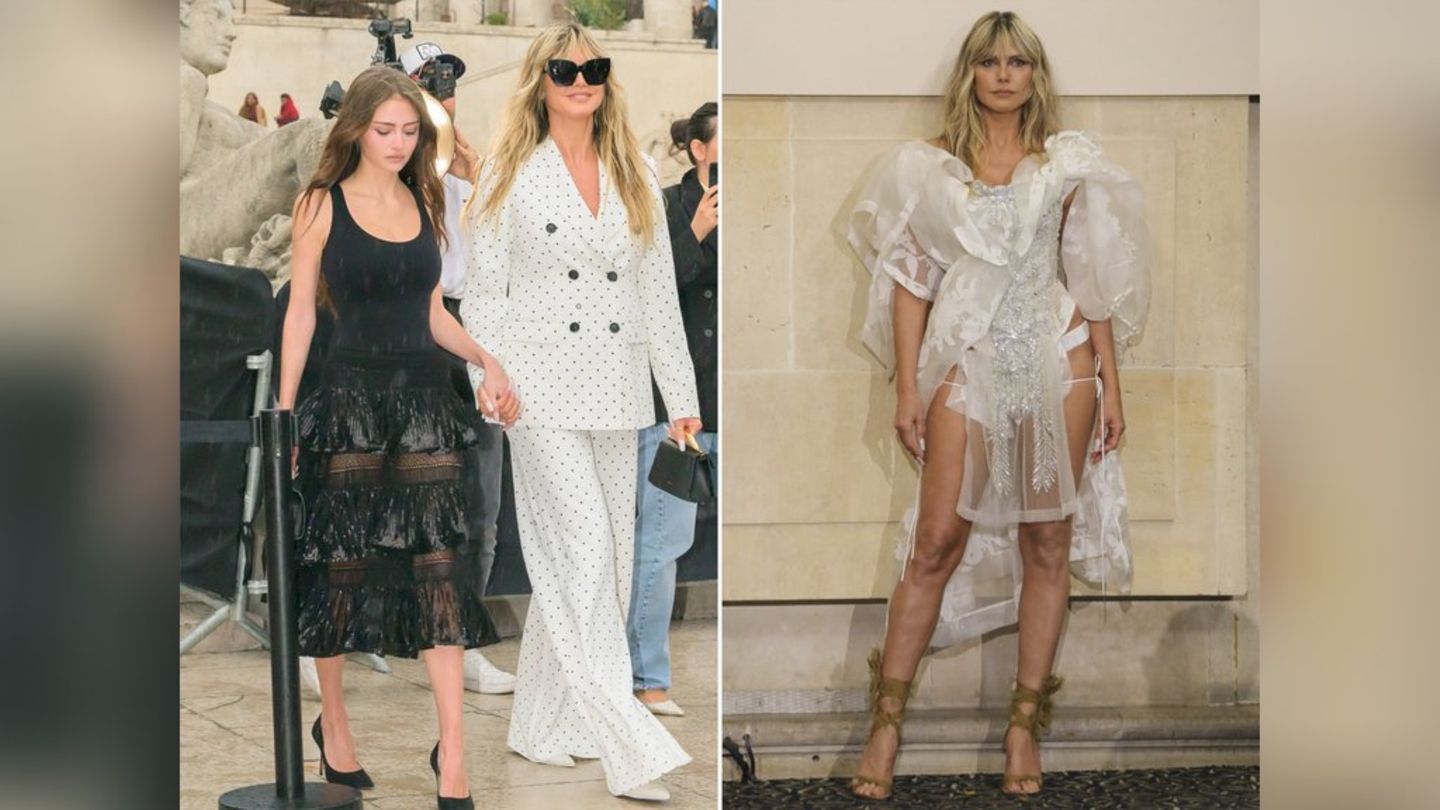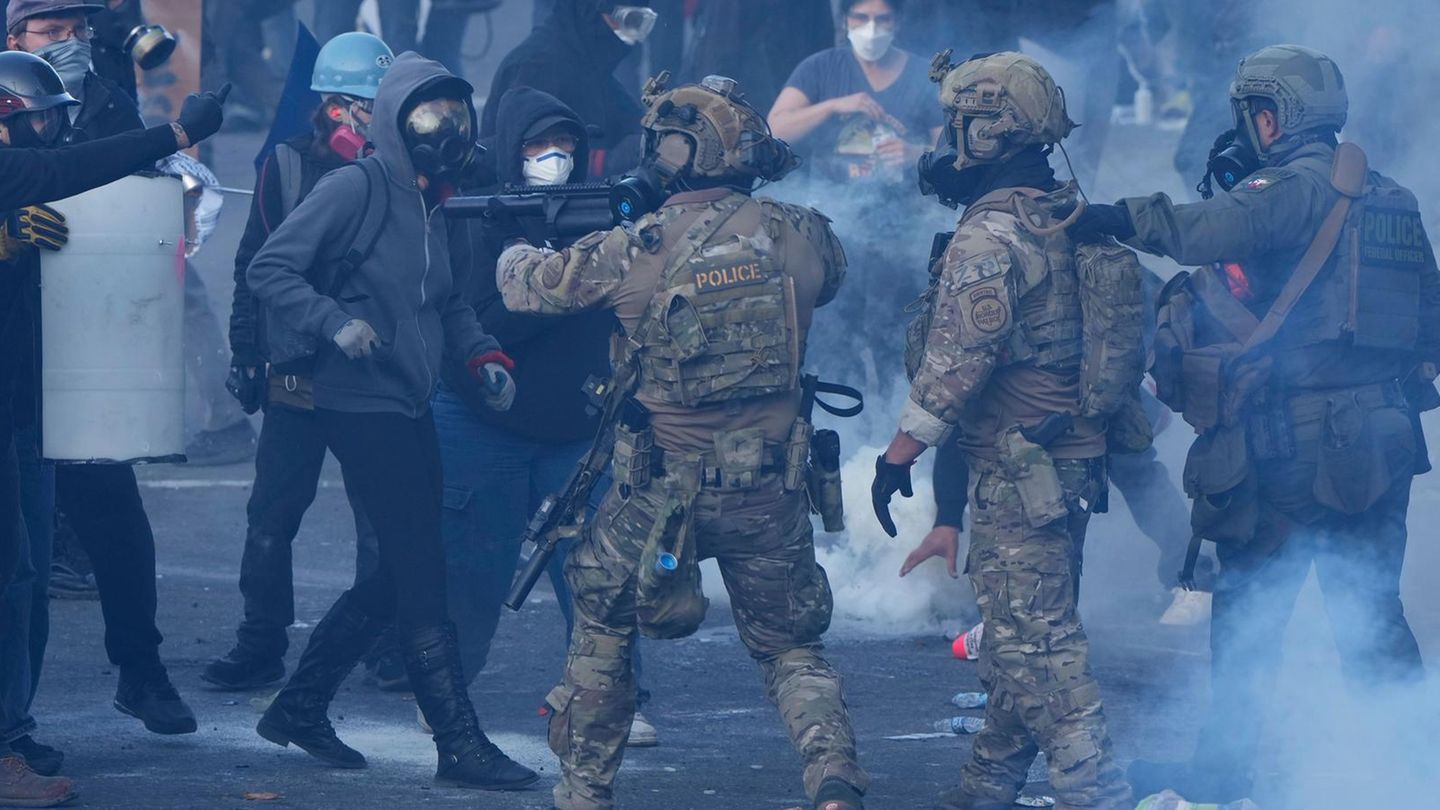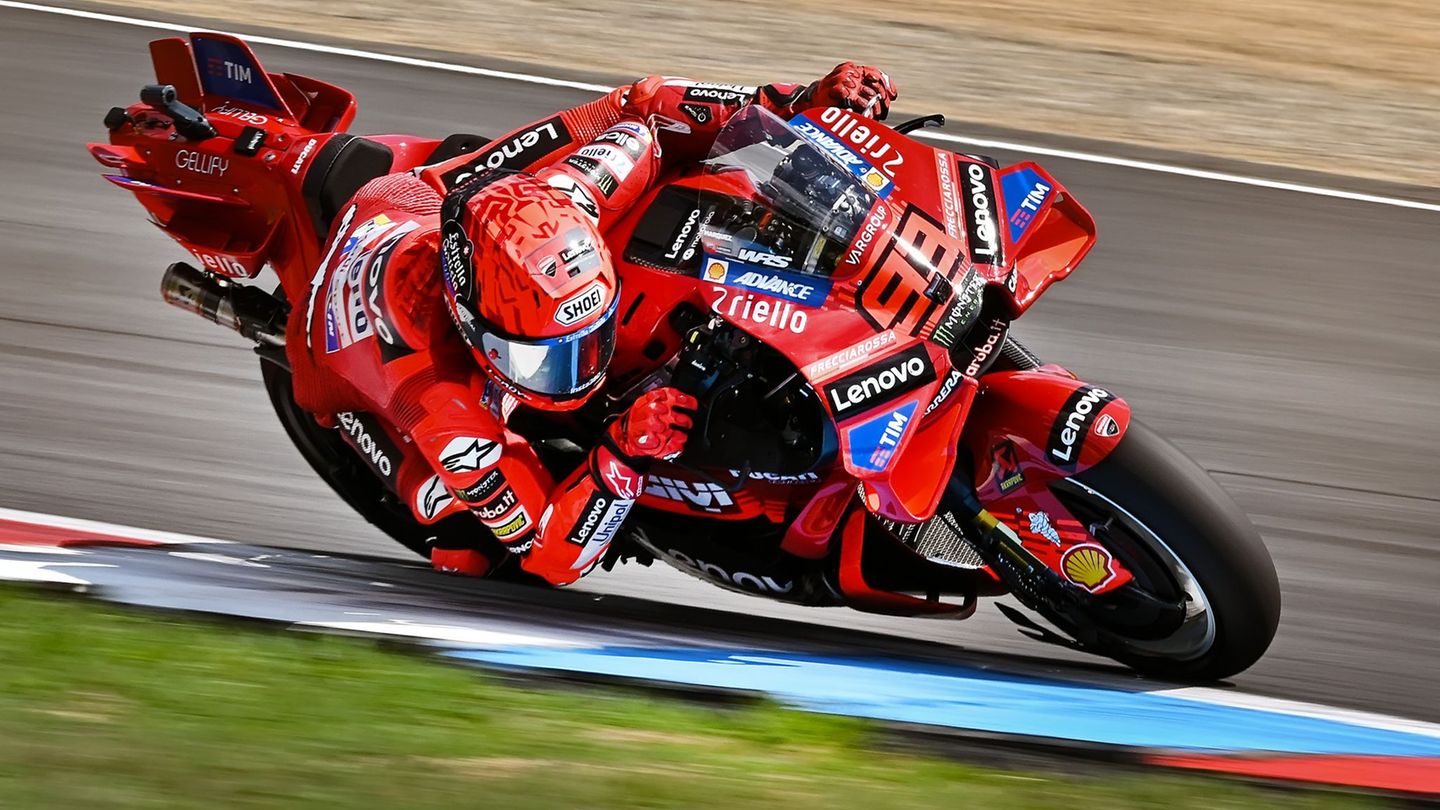Right-wing votes have long dominated the French presidential election campaign. Then the war in Ukraine overshadows everything. Anyone who has entered the race late can benefit from this.
Around a month before the presidential elections in France, the Ukraine war is shaking up the agenda and making the applicants next to Emmanuel Macron look almost like onlookers of the president, who is acting as a crisis diplomat and statesman.
Initially, there were signs of an election campaign of contrasts and ruptures in the country exhausted by the Corona crisis, in which traditional parties are losing their importance and hardly any camp can count on a regular electorate. Now the Russian war of aggression is giving Macron a boost in the polls – even though he only officially started the election campaign a few days ago.
Right-wing issues resonated
In contrast to the pro-European and centrist politician in the Élysée Palace, the right-wing camp had previously dominated the election campaign with its issues, driving the others ahead of them: internal security, migration, national identity and sovereignty stand for the right-wing Marine Le Pen from the Rassemblement National and far-right Éric Zemmour at the top of the agenda. Zemmour in particular has tried to drive a rift between population groups with attacks on immigrants and Muslims. But his radical demands are well received.
Valérie Pécresse, who is running for the conservative Républicains, is also addressing these issues – albeit less extreme – in her difficult balancing act of addressing supporters of the right-wing camp as well as the electorate in the center that Macron is courting.
The splintering Left and the Greens have so far not been able to set priorities in this election campaign, in which nobody really likes to shine. The mayor of Paris, Anne Hidalgo, the candidate of the Socialists, who, together with François Hollande, were the president in the last legislative period from 2012 to 2017, was completely defeated in the polls by just a few percent. The figurehead Jean-Luc Mélenchon, who is much further to the left, is more promising and is demanding a political restart with fundamental changes to the system.
Tailwind for Macron
The EU, which is acting as one in the Ukraine crisis, is now giving Macron a boost thanks to the French EU Council Presidency and is hardly advertising for the right-wing call for sovereignty over Brussels and national unilateralism. At the same time, Le Pen and Zemmour, but also Mélenchon, have to explain themselves because of an attitude towards Kremlin boss Vladimir Putin that has been criticized as being too benevolent. Macron benefits from the further weakening of the competition. Because he scores above all with the fact that his opponents are even less convincing than he is. The majority of French people were not really satisfied with his tenure.
With the war now overshadowing everything, concerns were voiced in France that there was a risk of an election campaign without debate. Prime Minister Jean Castex tried to calm tempers. The election campaign will be as normal as possible.
Until the Ukraine crisis, it was not the climate that was the dominant issue in France, as it was in the German election campaign, but purchasing power – and could remain central now because of the problems threatening sanctions against Russia. “Our growth will inevitably be hampered. The rise in the price of oil, gas and raw materials has and will affect our purchasing power,” warned Macron – and at the same time announced that Prime Minister Castex was already working out countermeasures.
Country is deeply divided
From 2018 onwards, Macron had learned how important the topic is from the yellow vest protests, which were also directed against rising fuel and living costs and revealed the social divisions in the country and their explosive force. Opponents have often criticized Macron as the “president of the rich”. The section of the population that he allegedly preferred and privileged contrasts with the large number of migrant residents of the suburbs with fewer opportunities for education and advancement. Some experts criticize that Macron has not even tried to bring together the country, which has been deeply divided for years, and to take action against inequalities.
Everyone was recently exhausted after the Corona crisis. And although the pandemic itself plays only a minor role in the election campaign, the area of health care is moving the electorate.
One issue that has been on the minds of parties and candidates for months is voter turnout. Campaigns were used to remind people to put themselves on the correct electoral register in order to be able to vote. An attempt was made to motivate young people in particular. In the regional elections last year, voter turnout fell to an all-time low. A low turnout would still be a setback for many, since traditionally a large proportion of the population had cast their vote. The decisive factor should therefore be who can mobilize their supporters for the first round on April 10th and the runoff on April 24th.
Source: Stern
David William is a talented author who has made a name for himself in the world of writing. He is a professional author who writes on a wide range of topics, from general interest to opinion news. David is currently working as a writer at 24 hours worlds where he brings his unique perspective and in-depth research to his articles, making them both informative and engaging.




